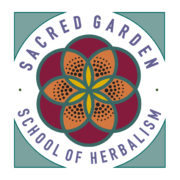UPCOMING EVENTS
Registration for Buds & Blossoms Program is now open

Sunday Morning Tea Ceremonies

with Silvy Franco
Join Silvy for a meditative ceremony to commune with Camelia sinensis. Come for quiet reflection as you sip on several cups of tea following Japanese tradition. Ceremony begins at 9:30 am and goes for an hour. Pre-registration is required.
Suggested Donation: $25
+++++++++++++
Community Medicine Making Circles

with Jen Halima
Come create botanical medicine and explore the foundations of herbalism. Build a home apothecary from locally grown herbs. You will make herbal oils, syrups, tea blends, tonics, nourishing treats and more!
6 Classes, next one July 26th
+++++++++++++
Intro to Plant Communication ~ Aug 8th
&
Flower Essences 101 ~ Aug 9th
with Teacher, Author, & creator of Brigid’s Way ~ Jen Frey

Intro to Plant Communication
(Aug 8th, 6:30-8:30pm)
When you attend this delightful class, you’ll learn:
~Plants are conscious beings who learn, have memory, and respond to their surroundings, including our emotions.
~Humans and Plants have a deep bond.
~Communicating with Plants is a tool for our individual and collective evolution and healing.
Flower Essences 101
(August 9th, 9 am- Noon)
During this interactive workshop we will:
~Explore the healing gifts of several Essences
~Make an Essence together which you will take home to continue your exploration of Flower Essences.




Spirulina
/in Herb of the Month /by Ashley DavisSpirulina’s nutritional profile is impressive. It is the most nutrient-dense plant in the world (Nettles is a close second, being the most nutrient-dense land-plant in the world). The blue-green algae is made up of 50-65% amino acids, including the essential fatty acid gamma linolenic acid (GLA). It is also chalk full of vitamins and minerals including B vitamins, carotenes, iron, calcium and chlorophyll.
Chlorophyll, which gives this algae its deep green color, is a key component in the process of photosynthesis. It helps plants to absorb the sun’s light energy and convert it into glucose. We have thought that the ability to utlilize the sun’s energy was limited to the plant kingdom, but recent studies suggest that humans can also utilize the sun’s energy in the presence of chlorophyll.
“Here we show that mammalian mitochondria can also capture light and synthesize ATP when mixed with a light-capturing metabolite of chlorophyll.” (1)
These properties suggest that spirulina could be beneficial for the following:
Consider adding spirulina into your daily life if you are are feeling depleted, sluggish or overweight, or if you are wondering if you are getting enough essential nutrients in your daily diet.
I recently began to add spirulina into my daily protocol (click here to see my protocol & recipes) and can attest to the significant improvement in energy that I feel. I use it as an after-lunch pick me up and it helps me maintain mental clarity through the afternoon. I am excited to see how this changes with throughout the year with increasing my time spent outdoors in the warmer months.
This information is for educational purposes only and is not intended to prevent, treat or diagnose any disease.
Works Cited